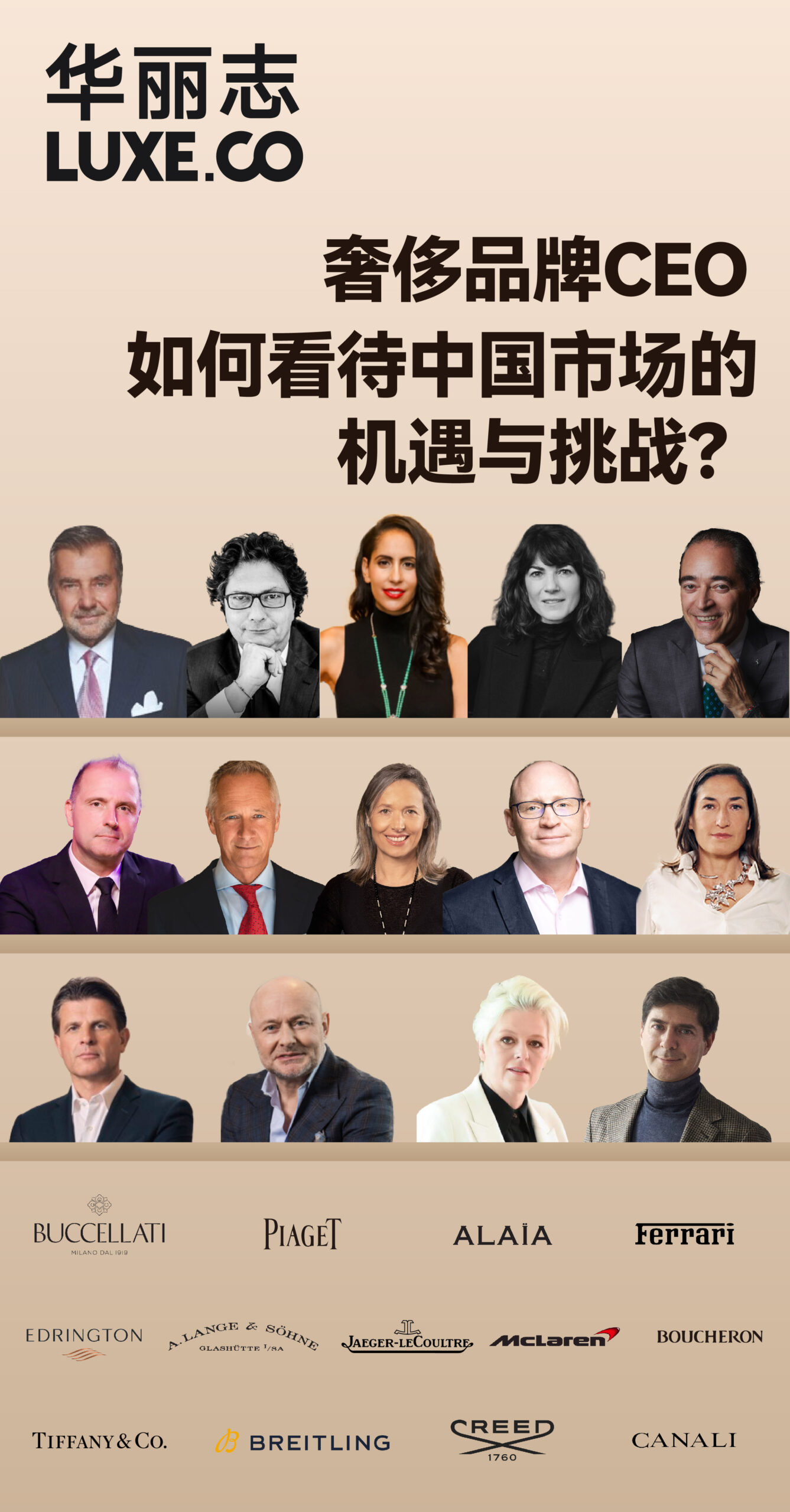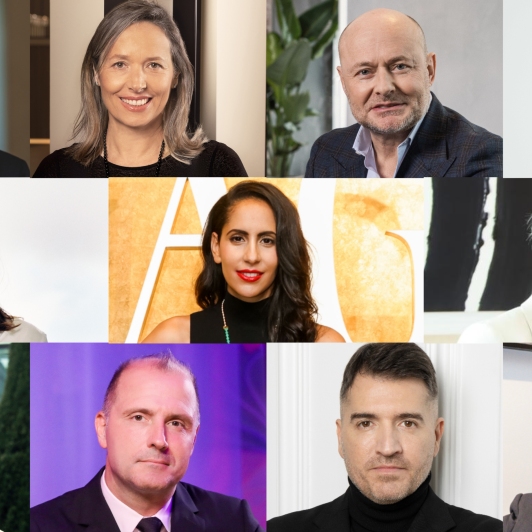The visibility and influence of female executives in luxury brands are steadily increasing.
According to a report on CEO talent and trends in the fashion industry released by data analysis company Nextail in April this year, in 2022, 31.4% of the new CEOs appointed in personnel adjustments across over 70 global fashion and luxury brands were women. This percentage is higher than that of departing female CEOs, which was 21.9%.
“I believe there should be more female CEOs in the fashion industry, and I am confident that moment will eventually come,” said Myriam Serrano, the Global CEO of the French luxury brand ALAÏA, during a recent visit to China, as she told Luxe.CO.
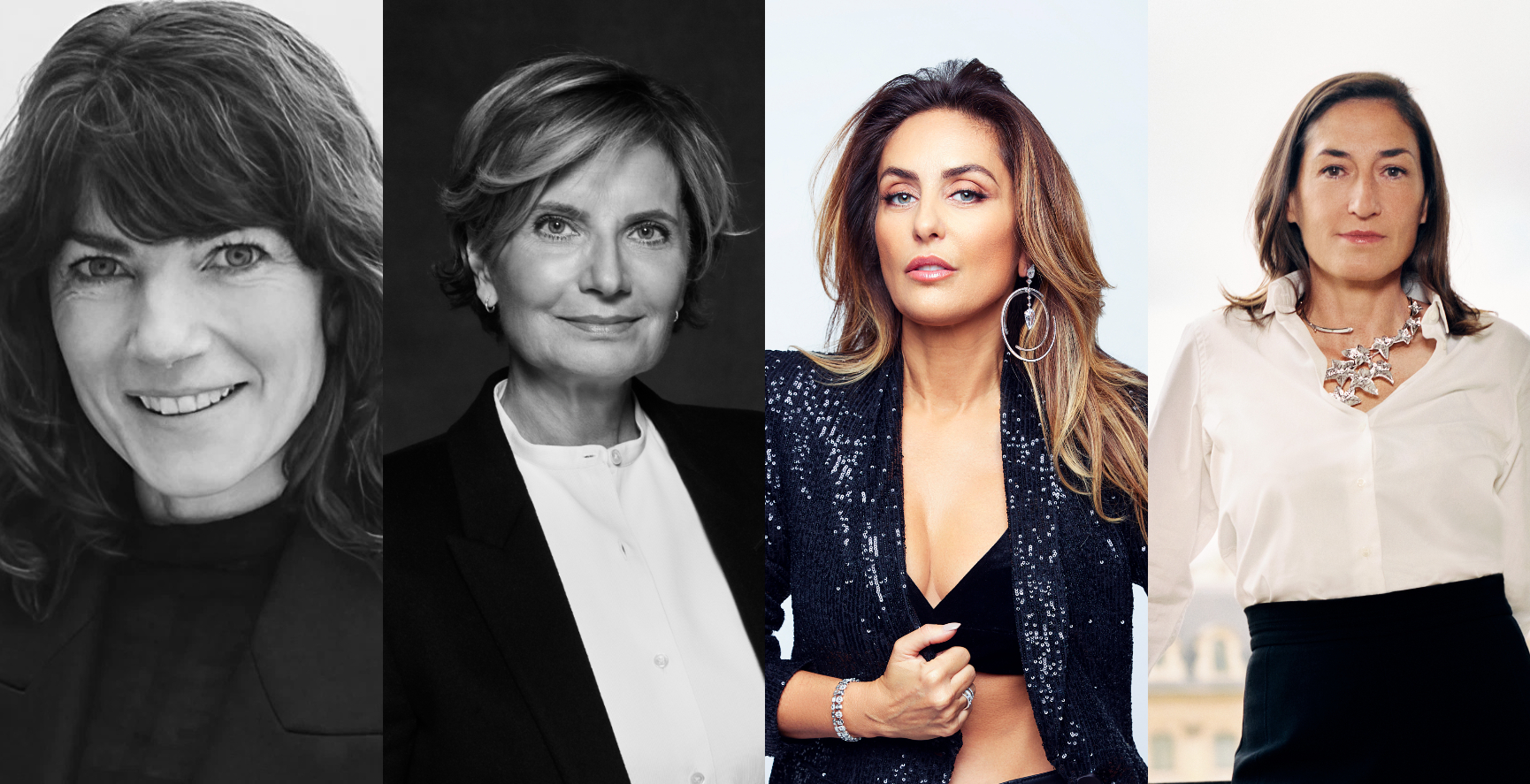
In the past year, Luxe.CO has engaged in dialogues with numerous luxury brand CEOs, including a group of dazzling female CEOs active in different sectors such as fashion, perfumes, jewelry and watches. These women passionately love their careers and have demonstrated extraordinary talent.
What new perspectives have their additions brought to the luxury goods industry, which is mostly dominated by men? And how do they view their unique advantages in managing luxury brands?
By sorting through the golden quotes of these female CEOs from the interview transcripts of Luxe.CO, and combining the important statements and deeds of other renowned female leaders in the luxury goods industry, Luxe.CO will elucidate this article from the following three perspectives:
- Feminine Team Management Style: Coexistence of Rationality and Sensibility
- Challenging Established “Industry Rules,” Boldly Pursuing Dreams
- Emphasizing the Emotional Expression of Products
Feminine Team Management Style: Coexistence of Rationality and Sensibility
While making rational plans for brand development, female leaders often possess strong empathetic abilities. They always aim to deeply understand their team members, building strong emotional bonds internally, which form the intrinsic driving force for the brand’s continuous advancement.
Myriam Serrano, Global CEO of the French designer brand ALAÏA, in an exclusive interview with Luxe.CO, stated:
“We have great understanding and empathy. Kindness, inclusiveness, and care are good qualities we possess as women, which are very important today. Sometimes in the fashion industry, we don’t talk much about this; ultimately, we want results, we want success. But I believe the best way to achieve success is to care about your team and employees. You succeed together and share with each other. This is the daily management style I prefer.”
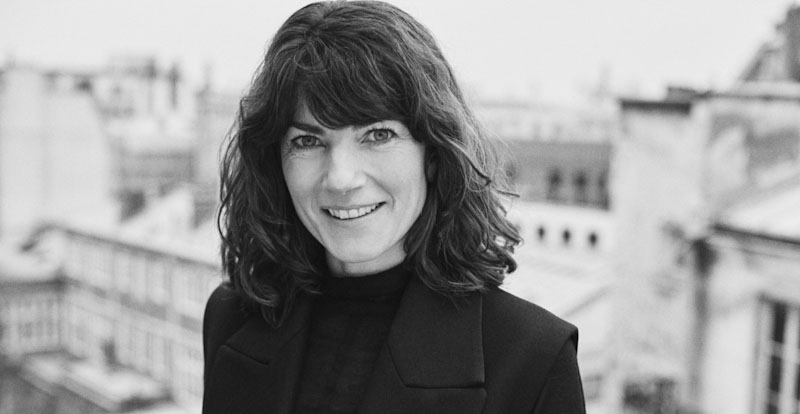
Myriam Serrano (pictured above) began her career at LVMH Group’s brand CELINE, serving as the General Manager of Brand Accessories. Before becoming the CEO of ALAÏA, she also held management positions at designer brands Nina Ricci and Chloé, part of the Richemont Group.
Valérie Messika, Founder and Creative Director of the French diamond jewelry brand Messika (pictured below), also mentioned the term “empathy” in an interview with Luxe.CO. She believes that “empathy and consideration for others” are significant advantages for women in team management.
She also emphasized that maintaining “authenticity” is the best way for women to exert their strength. “Above all, whether in professional or personal life, uphold loyalty and authenticity. This is particularly crucial when you’re at the helm of a company. Never impose your will on others; instead, draw them in with your own energy and encourage them to challenge themselves.“

Francesca Bellettini, Vice CEO of Kering Group and CEO of Yves Saint Laurent, once mentioned in an interview with the international fashion business media Fashionnetwork that managers should greet team members every day as store staff welcome customers. “When I arrive at the office, I always put away my phone,” she said. The company organizes workshops or team trips to Paris or Morocco every year. “When our employees eventually become brand ambassadors, I feel very happy. For me, this is a clear KPI for maintaining the health of the company.”
Francesca Bellettini has been President and CEO of YSL since 2013. Under her leadership, YSL has maintained steady growth over the past decade, with sales increasing from 557 million euros in 2013 to 3.3 billion euros in 2022, becoming the second largest brand in the group after flagship brand Gucci and currently seen as Kering Group’s most potential growth engine. In July this year, Bellettini was promoted to Vice CEO of Kering Group, responsible for the development of all brands.
For female leaders, while setting specific performance targets for any brand that wants to last is crucial, their strong perceptiveness allows them to quickly adapt and adjust the path to the final goal.
As Leena Nair, CEO of French luxury brand Chanel, once said in the “Change Makers” blog column: “Having intent and purpose gives you the energy to go through tumultuous times, but I lead with both my head and heart.”
Leena Nair has had a 30-year career at Unilever, most recently serving as Chief Human Resources Officer and a member of Unilever’s Executive Committee. She is the first woman and the first Asian to serve as Unilever’s Chief Human Resources Officer and the youngest executive to hold this position in the group’s history.
During her two years leading Chanel, the brand has continued to strengthen its influence in the industry by opening private boutiques, launching sustainable beauty products, and increasing the annual fund of the Chanel Foundation, among other strategies. In 2022, the total number of Chanel employees increased from 28,500 in 2021 to 32,000, a growth of 12%, and the company also established an eight-year talent reserve plan.
Challenging Established “Industry Rules,” Boldly Pursuing Dreams
Each segment of the luxury industry has formed its established rules over a long history, largely set by men who previously held higher authority in the sector.
However, as women enter the industry, they are more sensitive to the changing needs of female consumers and dare to break these conventional rules, bringing fresh perspectives to fashion and even to the more traditionally rooted jewelry and watch industries. Examples include Miuccia Prada, the third-generation leader of the Italian luxury brand PRADA , and Valérie Messika, founder of Messika, mentioned earlier.
In Miuccia Prada’s view, “courage” is always the most necessary quality for women. Since joining her family’s business in the 1970s, she has continually challenged the industry’s views on women’s attire, aspiring to redefine the term “femininity.”
In an interview with the international media 10magazine, she stated, “I’ve always tried to help women express themselves, to be free and do whatever they want. And be free from the judgment of men. Be free if you want to be free, because sometimes you want to please [men]. It’s very complicated, but it always has to be your decision. I always say you can go outside naked or in a really provocative dress – if it’s your choice. But never for finding a rich husband.“
Valérie Messika, born into a diamond dynasty, is challenging this century-old industry with her bold diamond jewelry designs.
“20 years ago, I found the jewelry too boring. The brands on Paris’ Place Vendôme, their pieces were too heavy, and each brand was talking about diamonds for weddings or heirlooms. I couldn’t find any jewelry that I would wear.
When I heard people say diamonds were for weddings, I often felt tired because I played with diamonds as a child. I thought, why can’t we create diamond jewelry that women can wear every day? Why can’t diamonds be a fashion item that makes women shine?
So, I started designing diamond jewelry, setting the price range at about 500 to 5000 euros. I believe this is affordable for women, similar to buying handbags and shoes,” she told Luxe.CO.
Sabina Belli, CEO of the Italian high-end jewelry brand Pomellato (pictured below), launched the #Pomellato For Women communication platform in 2017, aiming to unite and empower more women through this project.
01-Pomellato-for-Women%E4%B8%BB%E9%A2%98%E7%B3%BB%E5%88%97%E5%AE%A3%E4%BC%A0%E7%89%87_2023.jpg?x-oss-process=image/resize,m_fill,w_1000,h_1200)
“Today’s women are more independent and self-reliant… Besides maintaining gender equality, it is important to tell these women that they can follow their dreams and celebrate their achievements with jewelry and clothing,” Sabina Belli told Luxe.CO.
Emphasizing the Emotional Expression of Products
Historically, women have been the main force in fashion and luxury goods consumption, with McKinsey’s report indicating that women spend three times more annually on fashion than men.
When women take charge of a brand’s creative or managerial aspects, they often start from their own experiences and empathetically consider the creation of products that are emotionally expressive and resonate with more female consumers.
French high-end jewelry brand Boucheron, the first major jewelry brand on Place Vendôme led by two women, has a unique perspective on jewelry. Hélène Poulit-Duquesne, the Global CEO of Boucheron (pictured below), in an interview with Luxe.CO, said, “Claire (Creative Director Claire Choisne) and I view jewelry in a completely different way compared to others. Most people consider jewelry as an art form fit for museums, but we see art as just one aspect of jewelry. We are more interested in exploring how it integrates into people’s daily lives.
As women, we value the emotional connection between products and customers. Even today, people buy jewelry driven by emotional needs: to celebrate birthdays, weddings, or other significant life events… Therefore, we aim to establish this emotional model, ensuring customers feel great wearing Boucheron jewelry in any scenario.”
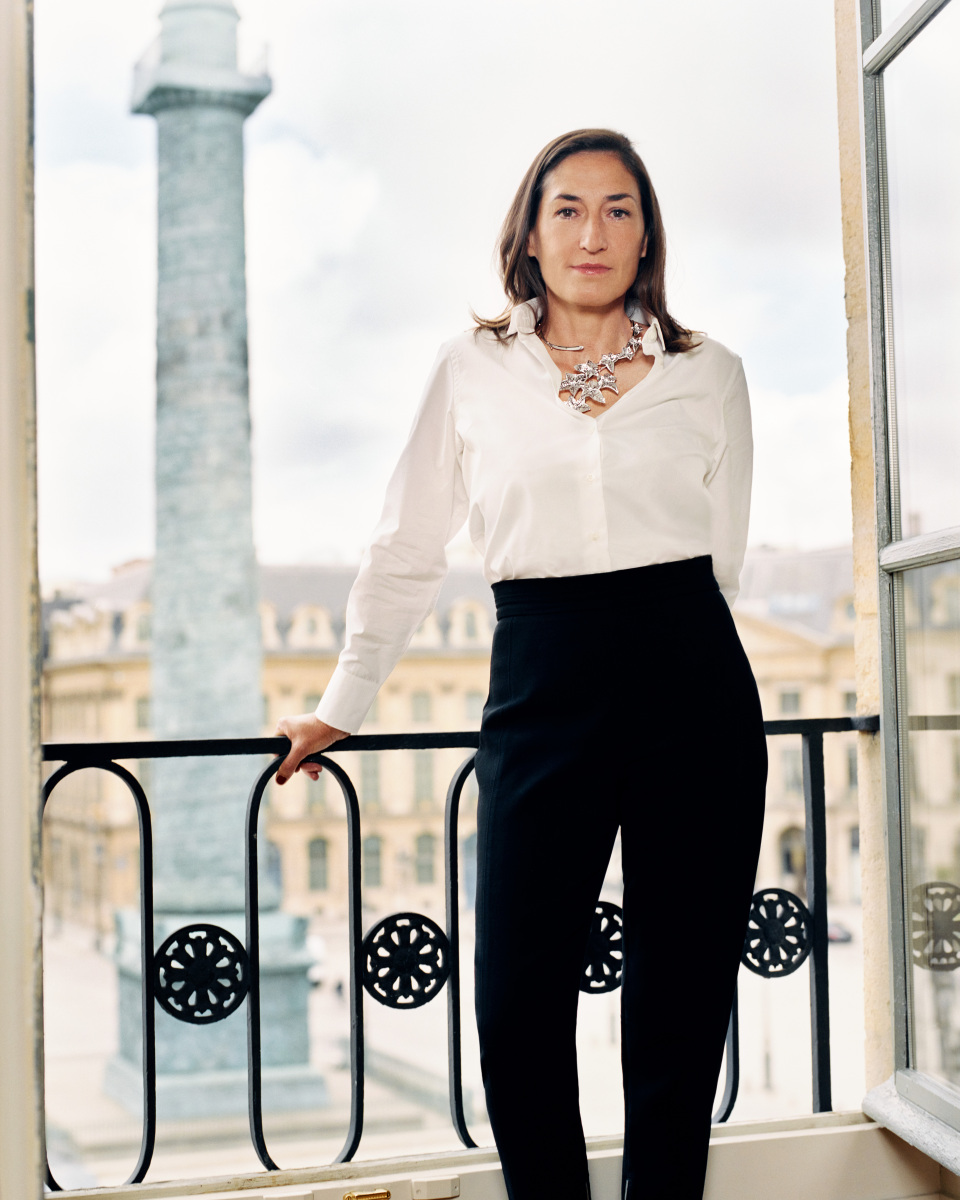
Hélène Poulit-Duquesne is one of the first women to lead a high-end jewelry brand. She became the Global CEO of Boucheron in 2015, after working for seventeen years at Cartier International.
Conclusion
Reviewing the history of the luxury goods industry, women have made indelible contributions in every segment.
In aspects such as team building, business insights, and strategic decision-making, female leaders demonstrate capabilities equal to their male counterparts. In the luxury industry, where aesthetics are highly valued, women’s natural perception of beauty and empathetic connections bring innovative and vibrant ideas to brands. This not only diversifies the industry but also strengthens the emotional ties between brands and their core consumers. This is precisely what many luxury brands aspire to achieve in their quest for transformation and breakthrough.
| Image Credit: Provided by brands, Myriam Serrano’s personal LinkedIn account
丨Reporter: Zuo Xiaoli
| Editor: Zhu Ruoyu

